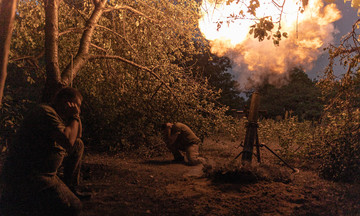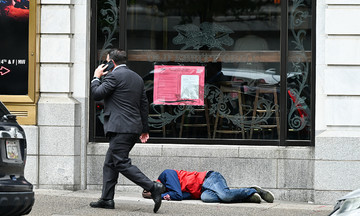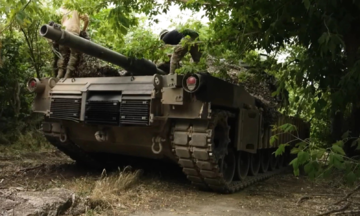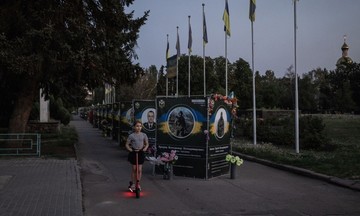On 6/8/2025, former US President Donald Trump told reporters at the White House that there was a "good chance" of a meeting soon with the leaders of Russia and Ukraine.
Trump didn't disclose the time or location, but US media, citing sources familiar with the matter, reported that he planned to meet Russian President Vladimir Putin as early as the following week and then hold a trilateral meeting with the Russian and Ukrainian leaders.
The next day, Yuri Ushakov, a foreign policy advisor to the Kremlin, confirmed that Moscow was beginning detailed discussions with Washington about a meeting between Putin and Trump.
According to Ushakov, the bilateral summit would take place "in the coming days" at the "suggestion of the American side".
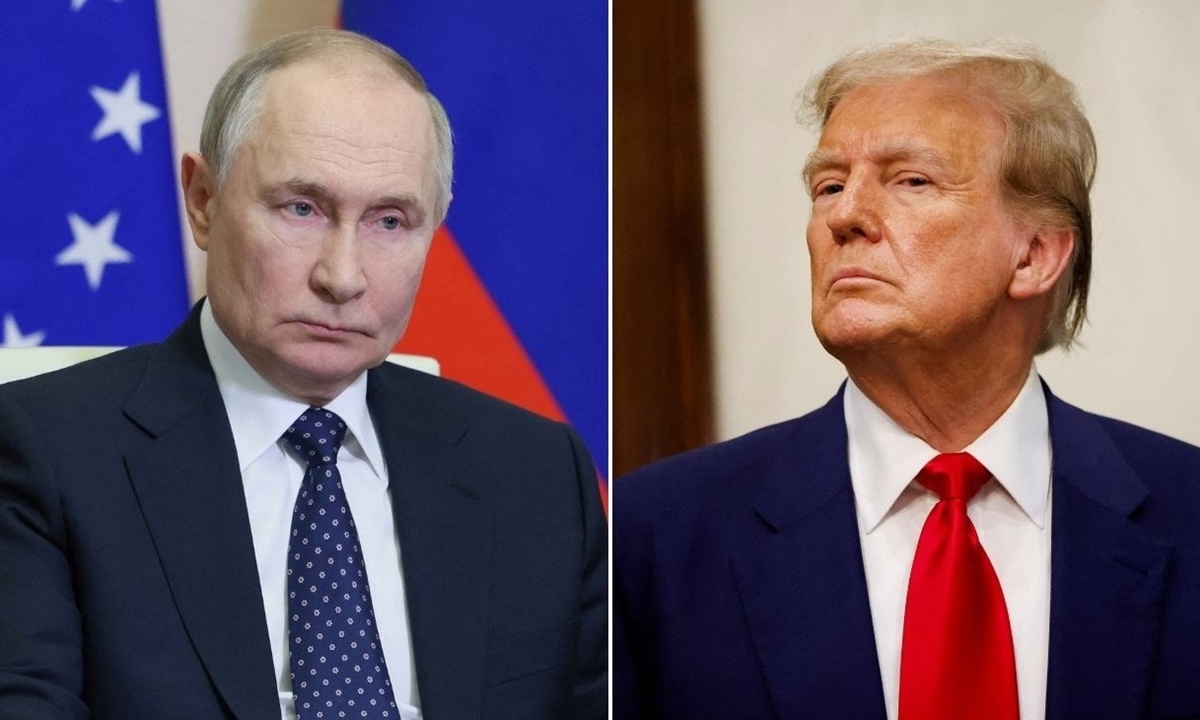 |
Russian President Vladimir Putin (left) and former US President Donald Trump. Photo: Reuters |
Russian President Vladimir Putin (left) and former US President Donald Trump. Photo: Reuters
The idea of a US-Russia summit, once considered unthinkable last year, gained traction after US special envoy Steve Witkoff traveled to Moscow on 6/8/2025 and spoke with Putin for about three hours.
Trump's anger toward the Russian leader seemed to dissipate after Witkoff's meeting. Trump appeared to believe that a first summit in years between the two leaders would be key to ending the conflict in Ukraine.
This contrasted sharply with Trump's stance in recent weeks, when he repeatedly criticized Russia for its air strikes on Ukraine, describing Russia's actions as "absolutely insane".
On 6/8/2025, Trump was cautious, saying there had been no "breakthrough" in Moscow. However, he remained optimistic despite Russia's recent drone and missile attacks on Ukraine, and the fact that Putin had shown no intention of ending the war.
Since taking office in January 2025, Trump had repeatedly claimed that Russia-Ukraine negotiations were on the verge of a major breakthrough, after previously promising to end the conflict within 24 hours.
However, observers believe Putin's reasons for continuing the war in Ukraine outweigh any incentives Trump could offer to end it.
"I think Washington sometimes underestimates the Kremlin's resolve and level of investment in this conflict," said David Salvo, a Russia expert and executive director of the Alliance for Securing Democracy at the German Marshall Fund.
He added that Putin has significant political motivation to end the war on terms favorable to Russia, given that the entire Russian economy has been focused on the conflict for the past three years.
"I don't see anything that could turn the tide and change the Kremlin's calculations," he said.
However, successful peacemaking sometimes requires leaders to take risks. If Trump were somehow able to initiate a genuine peace process, he could save thousands of lives and achieve a significant milestone for the US and himself.
Experts suggest a successful summit with Putin would demonstrate Trump's diplomatic abilities and bolster confidence, both in the US and Europe, that he could end the war through direct negotiation.
CNN analyst Stephen Collinson believes Trump's early emphasis on the summit's significance might pressure Putin to agree to at least one deal the White House could consider a victory, such as an agreement to stop air strikes on civilian targets.
The meeting also demonstrates the effectiveness of Trump's new strategy of pressuring Putin into negotiations rather than just making promises.
It's perhaps no coincidence that news of the summit came on the same day Trump announced secondary sanctions and heavy tariffs on India, one of Russia's top oil customers. Trump also faced a self-imposed 8/8/2025 deadline for sanctioning Moscow for ignoring ceasefire requests.
On 6/8/2025, there was a rare sign of optimism from Ukraine. "Russia seems to be leaning more towards a ceasefire; the pressure is working," said President Volodymyr Zelenskyy.
However, skepticism remains about whether the US-Russia summit can deliver substantial results or if Putin will revert to his old tactics.
During the first seven months of his second term, Trump was repeatedly disappointed by Putin's disregard for his peace efforts. Even with a conciliatory approach, he couldn't persuade the Kremlin leader to change his stance.
Many fear Putin is once again raising Trump's expectations after the meeting with Witkoff, who has yet to achieve significant progress in peacemaking efforts in either the Middle East or Ukraine.
Regarding Witkoff's proposal for a trilateral meeting including Zelenskyy, Kremlin foreign policy advisor Ushakov said Russia "has no comment on this," dimming the prospects for a US-Russia-Ukraine summit.
Trump admitted he didn't know Putin's true strategy.
"I can't answer that question for you yet," he told reporters at the White House on 6/8/2025. "I'll let you know soon, in the next few weeks, or sooner."
Trump might try to portray a summit with Putin as a major victory. However, in doing so, he would also give Russia an opportunity to avoid ending the war in the near future, Collinson said.
Putin has long said he's willing to meet Trump at the appropriate time. Such a meeting would mark the Russian leader's return to the world's top diplomatic stage.
"I think Putin would see this as an opportunity," said John Bolton, Trump's former national security advisor.
The key question is what proposals or concessions Russia will offer at the upcoming summit. The US has tried unsuccessfully to establish a comprehensive ceasefire agreement with both Moscow and Kyiv.
The possibility of a broader ceasefire seems remote. Russia is poised for major breakthroughs in its summer offensive and has no reason to cease fire now.
According to Collinson, Putin might view the meeting with Trump as a way to buy time for his military to gain control of more strategic areas in eastern Ukraine.
Another potential approach is that Putin will offer minor concessions to distract Trump from Ukraine, such as a promise of nuclear arms control talks to bolster Trump's legacy, or economic opportunities to appeal to his business instincts.
Ukraine must also be heard and wary of the possibility that Trump might emerge from the meeting with a pro-Russia peace plan that meets Moscow's territorial demands in Ukraine and permanently eliminates Kyiv's chances of joining NATO, analysts warn.
Zelenskyy sent a cautionary message to the US on 6/8/2025: "The key thing is to ensure that Russia doesn't outsmart anyone on the details, including us or the US".
Vu Hoang (CNN, AFP, Reuters)









